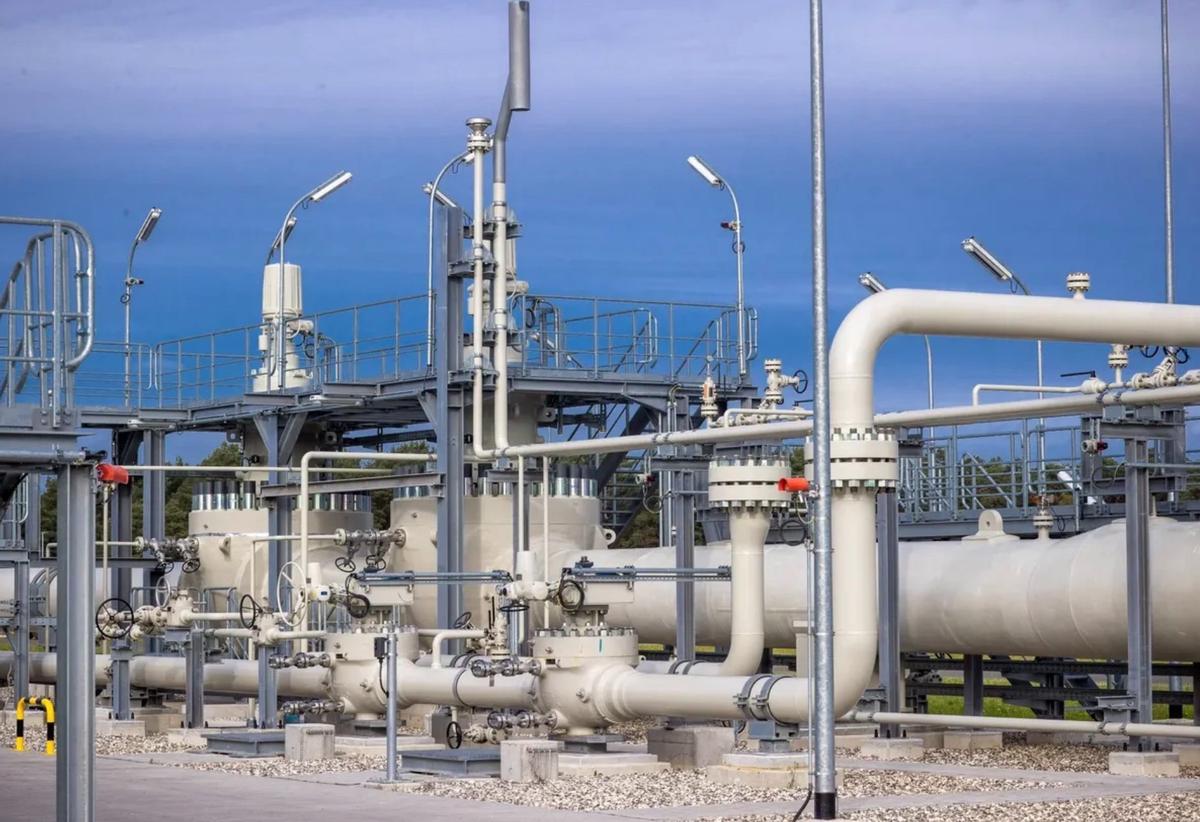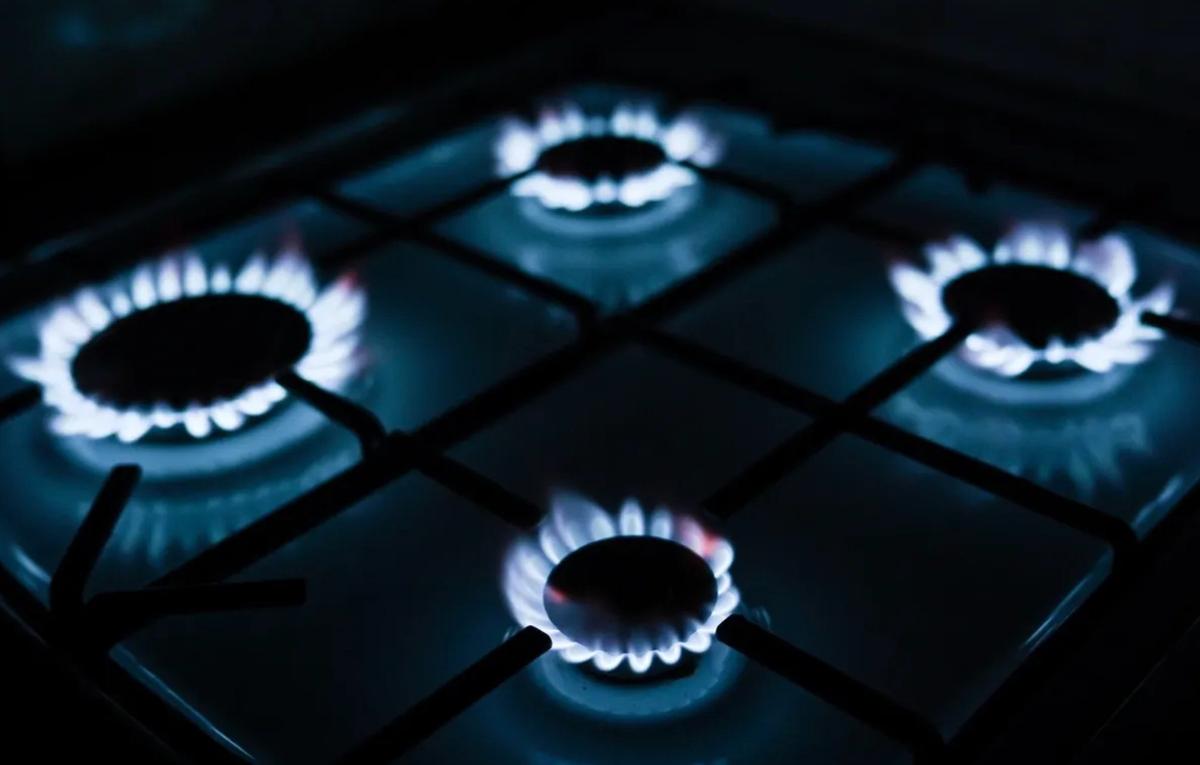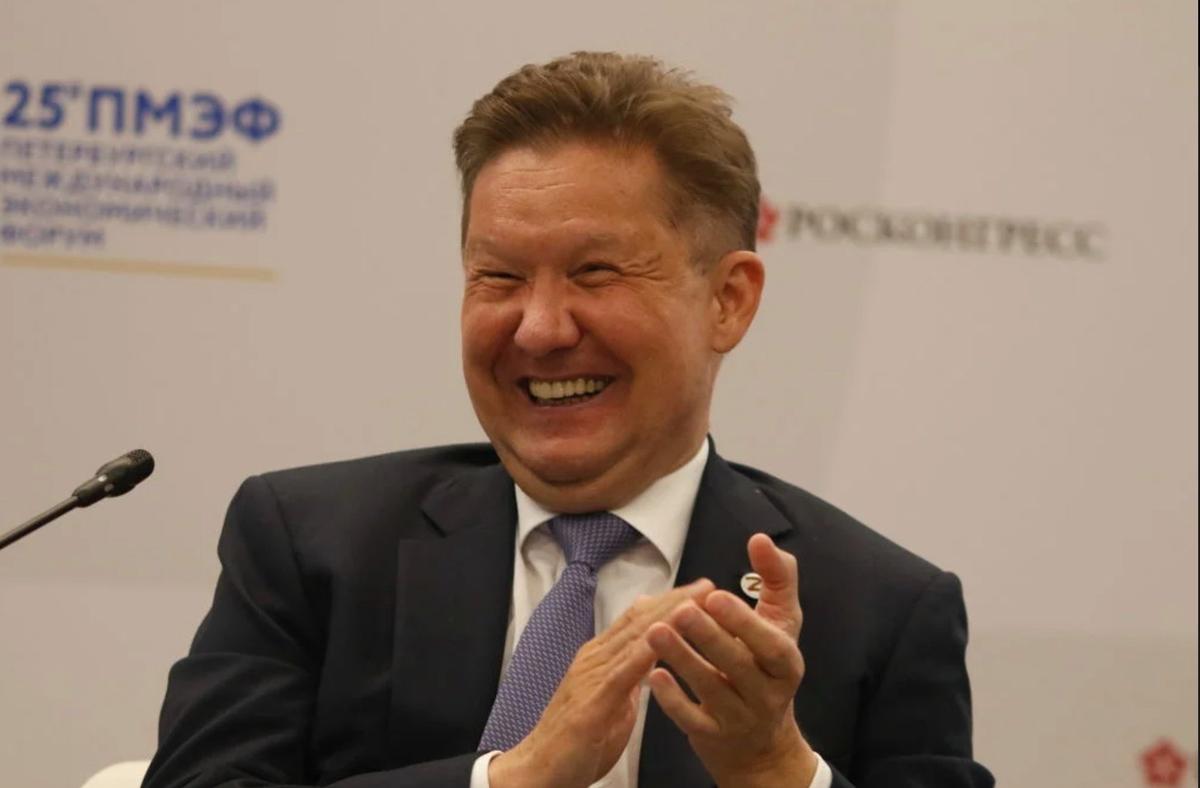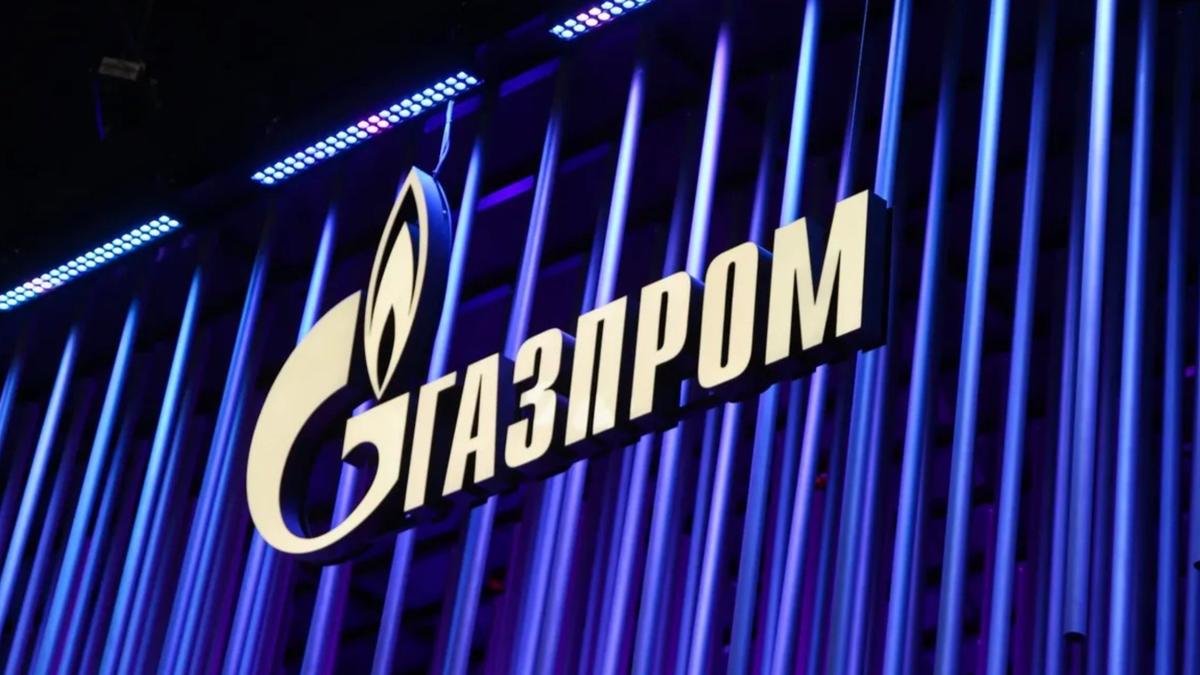Gazprom, Russia’s energy giant, refused to distribute profits to its shareholders and went down in value by one third at once recently. The Nord Stream 1 pipeline will be “closed for maintenance” shortly, while the rest of Gazprom’s pipelines are either barely working or stopped their operation completely. The Sakhalin-2 project lost its key stakeholder Shell, while the Japanese investors are suggested to consider leaving so that it would be easier for Russia to nationalise the operator company. How Gazprom, which declares itself Russia’s “national treasure,” will survive this? We asked Mikhail Krutikhin, a partner in the independent RusEnergy consulting agency and an energy expert.
How critical is this share price downfall for the company and what kind of impact is it going to have upon Russia’s state budget?

Mikhail Krutikhin
Oil Gas Analyst, partner of RusEnergy
The popularity of Gazprom’s papers sold at the Russian stock market has fallen, yes. These papers are in fact nothing special, but they are a symbolic representation of Gazprom’s market cap. They are still sort of popular among the investors since they are easy to get rid of, they are still considered liquid assets. I have to say I’m not a stock gambler myself; I think it is a game for high hitters who know for sure which prices will go up or down, otherwise it is but a lottery. So, the fall of Gazprom’s stocks is no big deal. Yes, this means the company’s market cap went down; moreover, the company was indeed in the red sometime in the past, too. People often ask me if Gazprom ever goes bankrupt. My answer has always been the same: Gazprom will never go bankrupt as long as Russia’s state budget exists. The company is going to piggyback off the state budget for as long as the people who manage Gazprom will piggyback off the company itself.
A capitalisation downfall is a bad thing to happen, isn’t it? It normally prevents the company from attracting new funds and receiving new loans.
Well, Gazprom is cut from receiving any cash flows from abroad or to receive foreign loans anyway, therefore, its financial reliability is no longer important.
The reason why Gazprom is cutting corners on profits distribution is that it simply needs money, even given the current gas prices, right?
I have a feeling that Gazprom has become something different recently. It was required to be a source of income for the federal budget before, where it distributed much of its profits. Moreover, the income partly went to Rosneftegaz which owns 11% of the Gazprom shares; this money is managed by Mr Putin personally, the people are not told what this money is spent on. And now, I believe, Gazprom is going to need a lot of money to run the new investment plan. The company’s main investment goal, as Mr Putin puts it, is to construct gas transportation infrastructure in Asia near China, which obviously costs a lot of money. I think that Gazprom is saving money for a new massive pipeline.
Why would they need it? Nobody knows if China is actually going to buy this gas, right?
I see three issues here. First, China did not declare their readiness to buy as much gas from Gazprom as Russia had been selling to Europe all these years. Second, China has not agreed to route the pipe through the Mongolian territory, and it never will. And third, Russia exported 155 billion cubic meters of gas to Europe last year; constructing a pipe capable of transporting at least 100 billion cubic meters, even if somebody is going to need this much gas, will require an enormous amount of money and, of course, a lot of time, from 12 to 15 years, that’s for sure. Reaching the project capacity of the Power of Siberia pipeline, capped at 38 billion cubic metres and scheduled for 2025, will require ten years since the start of investment in 2015. The new potential project will be a pipe three times longer, and additionally around 700 kilometres to connect it with the Sakhalin—Khabarovsk—Vladivostok pipeline.
Constructing this will require at least 15 years, so replacing Gazprom’s European exports immediately is out of the question.
Does that mean they will not distribute their profits at all for the next 15 years?
I’m not sure about this, but they will need a lot of money if they are going to build the pipeline Putin ordered.
I don’t get it, why spend 15 years to build a pipe and waste a crazy amount of money on it without being sure that it is going to be used at all?
Well, we can see that Gazprom has had a lot of economically senseless projects over the years. It sold its gas to China for 140-200 dollars per thousand cubic metres while the European price was up to 2000 dollars at the time. This was completely useless in terms of economics, of course. Take the Nord Stream 1 or 2 projects, or the South Stream project where they would dig the pipes in an out. The Sakhalin—Khabarovsk—Vladivostok pipeline has not reached its proper capacity, too. Such projects are not aimed at gaining commercial profits, and they are not aimed at actually exporting gas to China as Mr Putin says. Gazprom is a state-owned company, and it is run by state officials. Companies like Gazprom or Rosneft generate profit for their top managers when certain projects are being worked on, not when the goals are achieved. The more money is allocated on such projects, the more money can be stolen by the managers, as simple as that.

Receiving station of the Nord Stream gas pipeline in the Baltic Sea, 2020. Photo: Jens Büttner / picture alliance / Getty Images
So, Gazprom needs funds to generate money for the future contractors, not its shareholders?
Absolutely. If there’s going to be a new massive project, it’s going to require an enormous amount of money. The point of setting up a project like this is to steal loads of money, that is the company’s actual function. Bloated budgets, padded bills, no economic efficiency, this sort of things. These sunk costs are what it’s all really about. And there’s no way of getting this money back. When enough money is stolen, they actually start considering if the project is worth it.
Where is Gazprom going to find the money? It is formally a business company after all.
Yes, formally it is a business company. But as long as there is the state budget, they may take money from the state. Alternatively, Gazprom may loan money from state banks.
I’ve always thought the state budget actually profits from Gazprom, and not the other way around.
The state used to profit from Gazprom when the company distributed its profits, yes. Moreover, the state receives a lot of money from the gas industry in severance tax. Apart from severance tax, there are also natural gas export duties, at least 30% of the total cost. Certain amounts of exported gas were exempt from taxation, but the export duties were a source of income anyway. And, additionally, all sorts of corporate taxes, too. Thus, the gas industry brought a lot of money to the state budget.
And all this money will still be there, except for the dividends?
Well, the export duties will become much lower when there will be very little gas for export.
But the severance tax will be increased, right?
Most certainly, yes.

Photo: Artur Widak / NurPhoto / Getty Images
What happened to the Nord Stream 1 project? There is no real European embargo right now, so they must be able to pump as much gas as they did before. Gazprom says the Siemens turbine is broken, and there’s no way to fix it because of the sanctions imposed by Canada. Is this true?
The Canadian company which provided the turbines says they are fully functional, and nothing was broken. They say there are no technical issues which could stop the gas flow. I mean, this is what Siemens says. So, I think this decision is a political one. Russia is trying to blackmail Europe. Here’s what Russia is trying to say: “you’re not going to make it without us, you’re going to freeze to death. If you have a plan to do without Russia’s natural gas, we’ll help you get rid of it much sooner than you expect and see how you cope it.” There is currently no gas flow on Poland’s section of the Yamal—Europe pipeline due to Russia’s countersanctions. Gazprom says it won’t transfer gas through Ukraine after the Nord Stream 1 pipeline has been shut down. The TurkStream pipeline was closed for maintenance recently. Russia’s gas flow to Europe went down by 31% in the last six months if I’m not mistaken; Europe says this number is actually even higher.
What is Russia trying to achieve with this blackmail tactic? The US is now providing Europe with more gas than Russia for the first time in history.
The US is not the only player on this market. Take a look at Trinidad and Tobago, they sell liquefied gas all over the world, and they are doing just fine. They sell 40% of their gas to Europe. They were content with the South American market in the past, but now they’re happy to do business in Europe.
Anyone who can trade gas is now selling it to Europe where prices are really high at the moment. All this due to the fact that Gazprom is leaving the European market, of course.
Blackmail only works when the blackmailer is sure their victim won’t make it without them. But here it’s different; it looks as if Gazprom is actually helping Europe find the replacement faster. Why are they doing this?
I think Gazprom has been boxed into a corner.
Seriously?
I believe so. They are now in dire straits, which makes them act stupid and crazy. There’s no real logic in this. After all, what’s the logic in starting a war which destroys the economies of three countries: Ukraine, Russia, and Belarus?
Not just these three countries, to be fair.
That’s correct, there’s no logic in doing so much harm to your own country in the first place. Was this a reasonable decision? Seems pointless to me, to say the least.
Well, what Gazprom does makes it lose a lot of money, right? They complain about the lack of money to distribute their profits, but they make things even worse, how is that possible?
There’s no reason they would distribute their profits to someone else; setting up new projects will allow the company’s managers to steal the investments, as simple as that.
I see. Gazprom as a company will lose money, but certain people will benefit from this.
You see, Gazprom’s contractors are mostly companies owned by Gazprom itself. People like Rotenberg and Timchenko sold their construction companies long ago, so they won’t be in charge.
Do you mean that someone replaced “Putin’s friends”?
Not really. They purchased those companies at a cheap rate back in the day and used them to construct pipelines, earning a lot of money on subsidised contracts. When they realised the situation was getting ugly — when the Western sanctions were introduced — they sold the companies back to Gazprom at an extremely high price, making even more money off of that. That’s the good old way to do business.

Alexey Miller, Chairman of the management committee Gazprom. Photo: Maksim Konstantinov / SOPA Images / LightRocket / Getty Images
Who are the Gazprom beneficiaries of this?
You see, Gazprom is a very secretive organisation, they even have numbers instead of names for their departments. In fact, it is a dead organisation in terms of business. This reminds me of how morgues put labels on dead people’s toes. Gazprom is a plc, a public limited corpse. Even if the beneficiaries are known, nobody will tell you their actual names.
Rosneft acts differently, they still do distribute profits.
Look, it is unclear who actually owns Rosneft, but most of the company belongs to Rosneftegaz. People call it Putin’s secret wallet. This is where the profits are directed at. The company also has some disguised co-owners, named “a Qatari foundation” or “an Italian bank.” It is unknown who actually owns the company and who is getting the profits.
So, they keep it secret.
Exactly.
By the way, things must be going pretty bad for Rosneft as Europe has already declared an embargo on Russia’s oil, right?
We’ll see about that. Rosneft are now supplying India with extra oil by sea. But they won’t be able to deliver much oil this way. Rosneft has a huge advantage over other companies, since it is using the Eastern Siberia—Pacific Ocean oil pipeline almost on their own. The pipeline is used to transport Russia’s oil directly to China, as well as the Kozmino port on the Pacific coast where it is being loaded up on ships and sent to China as well. Pretty much all of this oil is owned by Rosneft. Some minor portions of oil there are owned by Lukoil, Surgutneftegaz or the Irkutsk Oil Company, but most of the oil on this route, as well as the Kazakhstani one, is Rosneft’s. This route will operate in spite of Europe’s sixth sanction package, of course. Russia sold 72 million tons of oil to China last year, and 83 million in 2020. I expect China to buy between 83 and 85 million this year. So, Rosneft is going to lose money in the West, but they will retain their monopoly in the East.
Rosneft’s monopoly in the East will help them suffer less from the Western sanctions if compared to the private oil companies, right?
Right, but you need to understand that China gets a lot of this oil almost for free. Rosneft’s contract with China will last up to 2029, but most of this profit is used to pay off an older debt. You see, Rosneft and Transneft loaned 15 billion and 10 billion dollars from the Chinese, respectively. Sometime ago Rosneft was on the verge of bankruptcy after purchasing many other companies in order to become a bigger corporation, so they needed a loan. Transneft spent all of its money on a new pipeline which they failed to complete since a lot of money had been stolen, so they loaned the money from China. So, the current oil flow to China is simply used to pay back the loan.
Is there any way Rosneft will be able to replace its lost European earnings?
They won’t find any new buyers in the West, of course, but their oil flow to China will continue. The shipment capacity and China’s abstention from sanctions will allow this. However, Rosneft will need to invest a lot of money into the Vostok Oil project, too.
Gazprom has an issue in the East since Shell has withdrawn from the Sakhalin-2 project. Did they simply leave, or did they take some technology or equipment with them?
The project’s operator is still working, the extraction is ongoing, and the materials are being delivered to the south of Sakhalin where the processing factory is located. The gas is being liquefied, too. The project produces about 10 million tons annually; there are long-term contracts to provide some of this gas to Japan as well. Japan gets about 8-10% of all its gas from Russia’s Sakhalin, which is a significant proportion. The rest of this gas is sold to China, Taiwan, and other countries. So, the project is still on. Gazprom nipped into this project as a co-owner at some point, but that’s a different story. Anyway, the project will simply be nationalised by Russia soon.
Japan’s Mitsui and Mitsubishi own 22,5% of the shares. Will this proportion also be nationalised?
The two companies were offered to either leave or try to stay.
What do you mean by “try to stay”?
By this I mean that there will be some sort of a special commission where they will have to prove they are not causing any harm to Russia despite hailing from an “unfriendly country.” So, their fate will be decided by a Russian commission. The Japanese were given a month to make this decision. It is impossible to make such a decision in a month’s time. I’ve been working with the Japanese for twenty-five years, and I know how decisions are made there. They will need to analyse too much data to meet the deadline. They will need to involve crowds of lawyers, economists, consultants, and all sorts of experts before they make the decision. Additionally, they will need to set up numerous commissions and board meetings... That’s a lot of work. This cannot be completed within a single month. So, when Russia sets up a deadline such as this, it simply means that they want the Japanese out, the sooner the better.
What’s the problem with the Japanese after all?
I have a strong feeling that this is but revenge for the stance the Japanese government, as well as those Japanese companies that left Russia’s market, had taken; the Kremlin considers Japan an “unfriendly country” now.
The Japanese companies must have contributed a lot to the Sakhalin-2 project.
Of course, they involved a lot of investment, technology, and equipment into the project. But Shell’s contribution was the most important one. I think it’s fair to say Shell did the entire project on their own for Russia, simply put. It was a massive project, and it has generated a lot of profit for Sakhalin and the entire country, too. It was established in 1994, and it could be going on for quite a while longer. Unfortunately, Gazprom got involved there in 2007 for no reason, even though they had no connection to the project. Now they’re going to kick the Japanese out.
Will the Japanese have their investments back?
Of course, they won’t. Go ahead and read Vladimir Putin’s decree. Nobody’s going to get anything, as simple as that.

